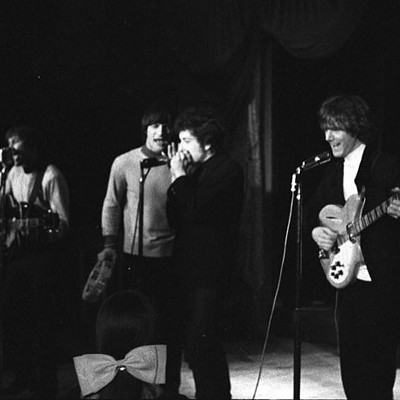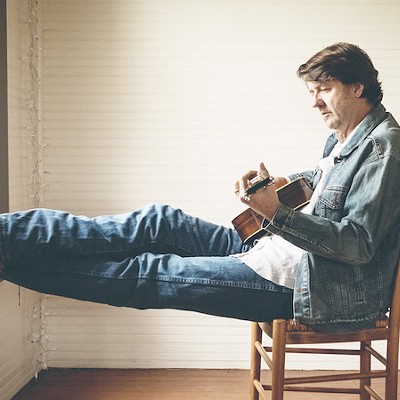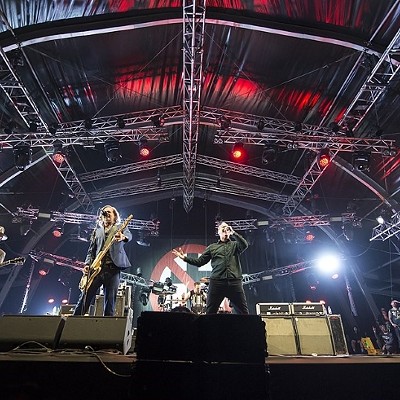In this book’s early chapters, Felder relates his childhood growing up in poverty in Gainesville, Florida, his difficult relationships with his father and brother, and his path-crossing with a later who’s who of classic rockers who lived near the area: Stephen Stills, Duane and Gregg Allman, and Bernie Leadon – who as an original Eagle would open the door for his friend in the group. Oh, and there was this teenage guitar student of Felder’s – a certain “Tommy” Petty – who would go on later to do pretty well for himself.
Once Felder joins the already-successful Eagles to add a little rock edge to their peaceful easy feelings, he’s thrown immediately into a contentious group where politics and power plays abound. With the songwriting/singing team of Glenn Frey and Don Henley (whom Felder mostly refers to as “The Gods”) taking more creative and financial control, Felder feels the double-edge sword.
It’s their songs that are making the band one of the country’s biggest, selling millions of records and filling stadiums (even though they fight viciously between themselves). But according to Felder, it also makes the other Eagles feel like little more than sidemen. Leadon and bassist Randy Meisner leave in the fray, while Felder, Timothy B. Schmit, and even Joe Walsh – who came into the group already a solo star – are put firmly in their place.
“I often tried to break the ice with Don and Glenn, but it always felt like a professional relationship,” Felder writes. “As the fame and the stake got bigger, the rest of us were less included in any of the decisions, until it got to the point where we became intimidated and didn’t like to ask. It was like being at the office party when your boss is there, all the time. You just couldn’t relax.”
Henley and Frey weren’t of like minds all the time either. Felder gleefully repeats the latter’s quote here: “No one can suck the fun out of a room faster than Don Henley.” And indeed, many other accounts of the head bird often paint him as a serious, controlling perfectionist. On the other hand, Felder relates how his own on-stage argument with Frey caused the sound man to turn off the mikes because the pair was threatening to kick each other’s asses after the show.
Still, it was the ‘70s, and Felder greatly benefits from the excess of the era, diving into mounds of cocaine, floating on a river of booze, and – despite his purported attempts to stay faithful to his wife – sampling the flesh of the multitudinous and all-too willing groupies.
The band’s hotel “3E” (or “Third Encore” parties) become Bacchanalian epics. But the past does have a way of catching up as well – when Felder’s wife goes through the fan mail, she finds an explicit letter from a Dallas groupie Felder had been with, the “most sexually adventurous creature” he’d ever met. And she opens it in front of his mother-in-law. Ooops….
The good times roll on despite internal tensions. And when the chords that Felder fiddles with one day becomes the instantly classic music to “Hotel California,” the band goes supersonic with the album and tour. But the Eagles disintegrate after the labored birth of 1980’s The Long Run. During the ensuing years, Felder mostly drifts with projects, though he does plenty of side work, eke out a solo record (Airborne), and performs the title track from the cult fave animated movie Heavy Metal.
It’s Henley who enjoys the best post-Eagles career with a string of hits and popular videos. That only solidifies his position when the group “resumes” their career 14 years later for the Hell Freezes Over CD and tour, its name taken from a frequent Henley answer to the question as to when the band would reunite.
But the days of pre-show bathroom harmonizing to “Seven Bridges Road” are a distant memory; and the drugs and women replaced by wives, kids, nannies and Pilates instructors. To keep the peace, the five Eagles each had their own nests in the form of dressing rooms and limos, crossing paths only on the stage.
“It’s amazing how a few zeros at the end of a check can make you forget how much you dislike someone and justify your putting up with them again after all those years,” Felder writes. Still, he managed to affix his signature on the papers and subsequent others that further increased the powers of “The Gods” in the band’s business. Of course, since his manager was also Glenn and Don’s manager, perhaps Felder should have looked for other representation.
As to why Felder was finally summarily fired from the band in 2001 after more massively successful touring and the aborted attempt at recording new material, there are of course differing versions. In Felder’s account, he was poking his nose (and his lawyer) a bit too much into the accounting books and questioning finances and “The Gods” smote him down for it.
According to said deities in their recent Rolling Stone cover story, Felder wasn’t cutting it creatively and was demanding more power. But even Joe Walsh – once Felder’s greatest friend in the group – concedes that the group dynamic is somewhat of a democratic dictatorship with “The Gods” in firm control.
Today, the music of the Eagles is still everywhere, and their Greatest Hits 1971-75 is the best-selling rock album of all time. The four remaining feathered friends – buoyed by a backing band – are currently on another massive tour supporting their hugely successful release last year of the double disc Long Road Out of Eden. It was the band’s first output of all-new material in close to three decades.
Don Felder is not there to bask in their continued glory, as someone else plays the intro to “Hotel California” each night. The publication of this book is likely to cut him off from the nest for good, joining Leadon and Meisner on the shit list. However, Heaven and Hell is a must-have for Eagles fans, best read while sitting next to a palm tree with the warm smell of colitas wafting through the air. -- Bob Ruggiero
Heaven and Hell: My Life in the Eagles (1974-2001), by Don Felder with Wendy Holden, 352 pp., Wiley, $25.95






